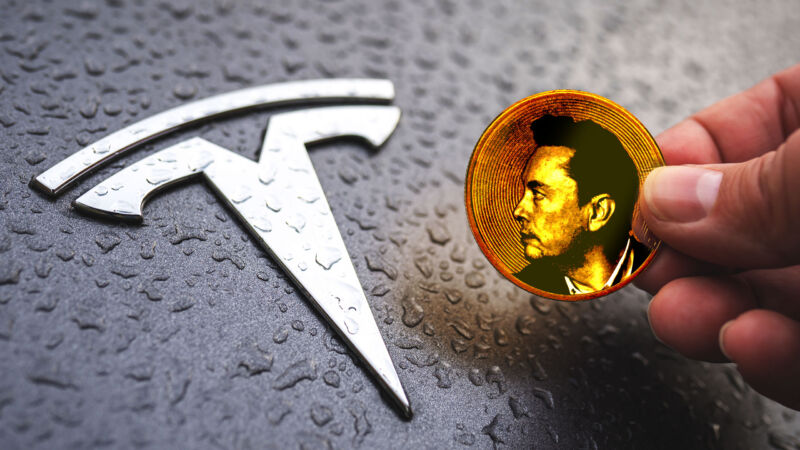
Aurich Lawson | Getty Images | Beata Zawrzel
No car company in recent years has been able to generate more news headlines than Tesla. Its original founders were among the very first to realize that lithium-ion laptop cells were just about good enough to power a car, assuming you put enough of them in a pack, and with critical funding from current CEO Elon Musk, the company was able to kick-start an electric vehicle revolution. But those headlines of late have been painting a picture of a company in chaos. Sales are down, the cars are barely profitable, and now the CEO is culling vast swaths of the company. Just what is going on?
Tesla had some good times
Always erratic, Musk’s leadership has nevertheless seen the company sell electric cars in volume, profitably. What’s more, Musk has at times been able to inspire faith in and devotion to his company’s products in a way that makes the late Steve Jobs look like a neophyte—after the Model 3 debuted in 2016, 450,000 people gave $1,000 deposits to Tesla for a product that wouldn’t go into production for at least 18 months.
Of course, that example also illustrates a long-running concern with the company and Musk’s investment-attracting pitches: overhyping and underdelivering. By 2018, more than one in five reservation holders wanted a refund after cheaper models were delayed and delayed.
But things have been on a bit of a downward slide recently. After having the long-range EV market almost to itself for some years, there’s now stiff competition from car companies in the US, Europe, and China. That has caused Tesla to engage in a prolonged series of price cuts that have seen the company’s profit margin—once the envy of the industry—reduced to a measly 5.5 percent. (The average automaker profit margin last year was 8.9 percent.)
Tesla has tried to stave off that decline by making its cars cheaper to build. Where possible, the company has stripped content from cars to reduce the cost of putting them together. Some of that is merely annoying to the driver; turn signals that were stalks are now capacitive buttons on the steering wheel. Some is more serious. Tesla has abandoned the radar and ultrasonic sensors that everyone else trying to build partially automated cars, let alone fully autonomous ones, think are necessary. Instead, the company is relying on optical cameras alone. And that has caught up with it—both of Tesla’s driver assists have been the subject of recalls after numerous crashes and at least 13 deaths.
It feels like the company just crashed into a parked fire truck
But this week has been a weird one, even for experienced Tesla watchers. On Monday, Musk swung the corporate ax again, just a few weeks after laying off more than 10 percent of his workforce. The executive responsible for overseeing the company’s crown jewel—the Supercharger network—and all of her 500-odd staff were shown the door. Gone, too, was the man in charge of developing new vehicles, in addition to his team, at a time when Tesla is sorely in need of second-generation platforms for the Models 3 and Y.
Nothing has calmed down since then. “Gigacasting” has been a much-hyped idea to cut costs even further by using massive single-piece castings for the car’s entire underbody, but according to Reuters, that idea is not happening anymore. (At least it will be good news for repairability since a damaged gigacasting will likely make a car a write-off.)
Tesla is also already pulling back on Supercharger sites. Inside EVs learned that at least four planned sites in New York City are off, though Musk did post to his followers to say that Tesla will still grow the network “at a slower pace” and with more focus on uptime.
The company has now parted ways with its head of HR, and insiders say that some of the layoffs “have nothing to do with hiring inefficiencies or restructuring but rather with Musk throwing his weight around Tesla,” according to Electrek.
